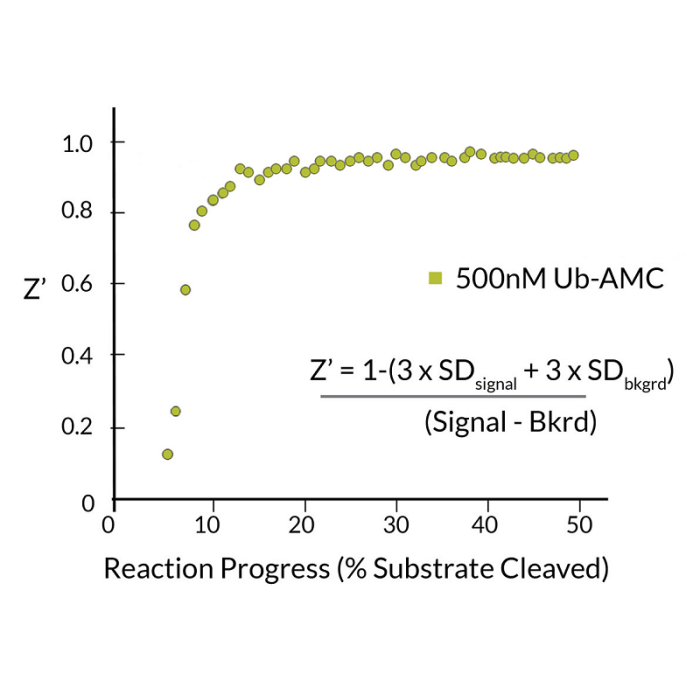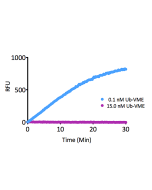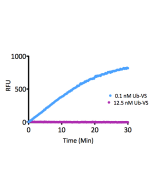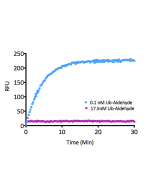Cookie Policy: This site uses cookies to improve your experience. You can find out more about our use of cookies in our Privacy Policy. By continuing to browse this site you agree to our use of cookies.
SouthBayBio
Ubiquitin-AMC (human) (rec.) (untagged)

| Product Details | |
|---|---|
| Synonyms | Ub-AMC; Ub-7-Amido-4-methylcoumarin |
| Product Type | Protein |
| Properties | |
| Source/Host | E. coli |
| Sequence |
Full-length, mature ubiquitin polypeptide (amino acids 1-76) (Accession Nr. P0CG47) conjugated on its C-terminus to AMC. |
| Crossreactivity | Human |
| Application |
Hydrolysis of the conjugate results in fluorescence observable by excitation at 345nm and emission at 445nm. Typical working range is 50-500nM. |
| Label/Conjugates | AMC |
| MW | ~8.7kDa |
| Purity | ≥99% (LCMS) |
| Concentration | Lot dependent. |
| Accession Number | P0CG47 |
| Formulation | Liquid. In 50mM MES pH 6.0. |
| Other Product Data |
Click here for a Typical Lot-specific Product Datasheet from the Original Manufacturer |
| Declaration | Manufactured by South Bay Bio. |
| Shipping and Handling | |
| Shipping | DRY ICE |
| Short Term Storage | -80°C |
| Long Term Storage | -80°C |
| Handling Advice | Aliquot to avoid freeze/thaw cycles. |
| Use/Stability | Stable for at least 1 year after receipt when stored at -80°C. |
| Documents | |
| Product Specification Sheet | |
| Datasheet |
 Download PDF Download PDF |
Ubiquitin is a 76 amino acid post-translational modifier expressed throughout all tissues in eukaryotic organisms. The many roles of ubiquitin modification include proteasomal degradation, signal transduction, inflammatory response, and DNA damage repair. Ubiquitin modification occurs through a pyramidal cascade of an E1 activating enzyme, E2 conjugating enzymes, and an E3 ubiquitin ligases. This enzymatic cascade results in modification of a ε-amine of a lysine residue on a substrate protein. Substrates may either be mono or poly-ubiquitinated by M1, K6, 11, 27, 29, 33, 48 or 63 linkages. Removal of ubiquitin from a substrate protein occurs via deconjugating enzymes, of which there are nearly 100 known enzymes with various specificities.








